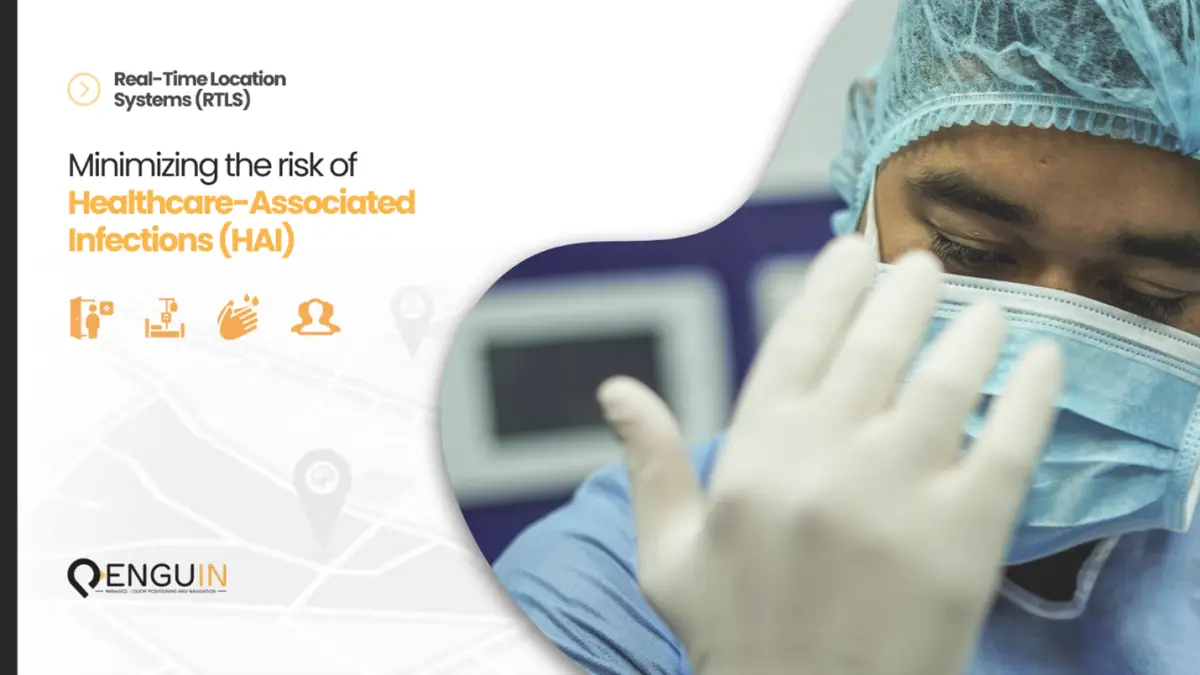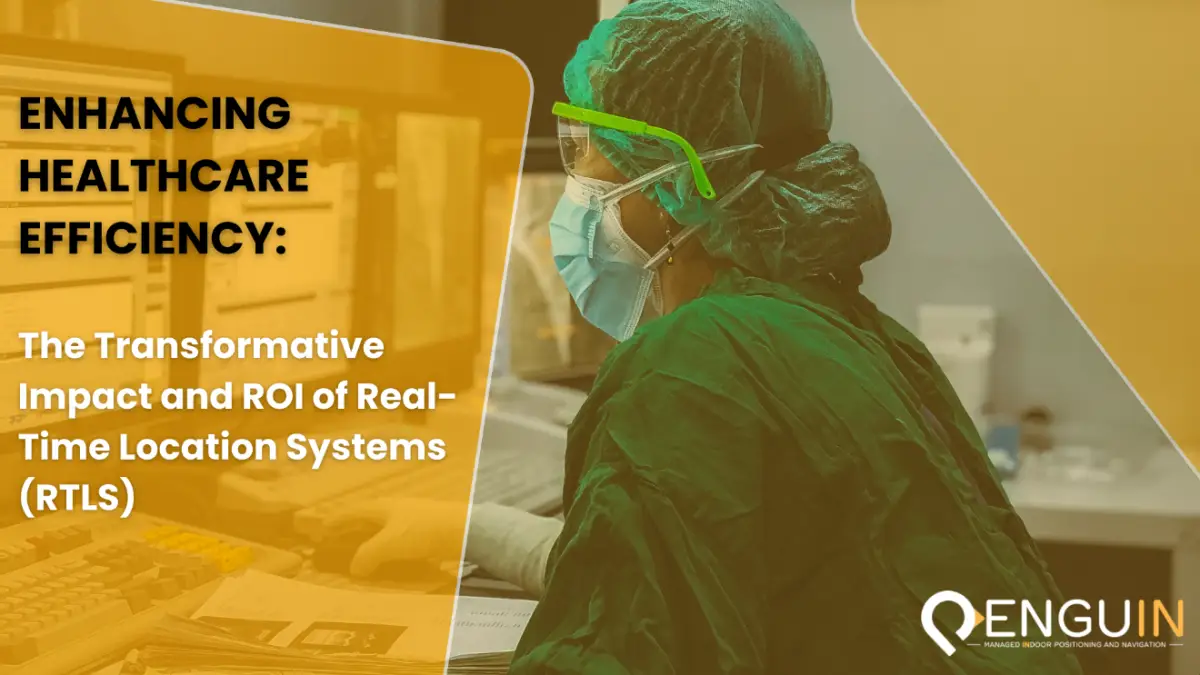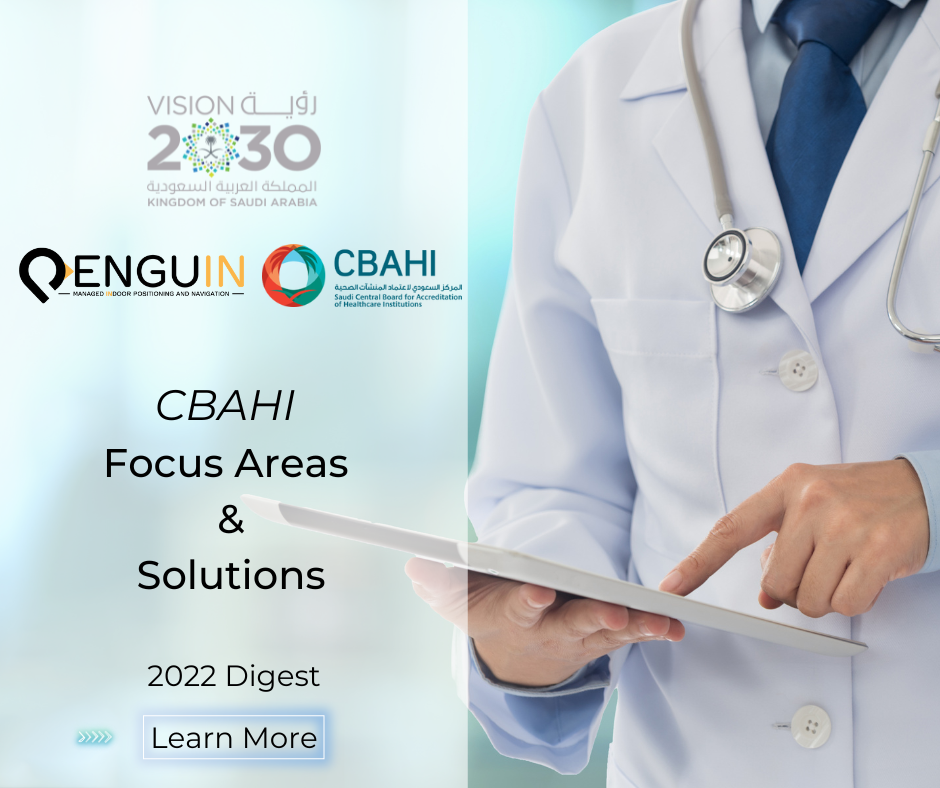CBAHI – Focus Areas and Solutions
Under the tight monitoring of the Central Board for Accreditation of Healthcare Institutes (CBAHI), Saudi Arabia is transforming and revolutionizing the healthcare standards across all medical and healthcare institutes to ensure alignment with the 2030 vision of the kingdom.
In the following article, we reflect on certain aspects of the CBAHI standards, and how PenguinIN can support you with not only complying but leveraging top-notch technology advancements to be ahead in your healthcare institute’s offerings quality and operational excellence.
Executive Roles & Duties:

The following criteria have been identified as KPIs for execs to focus on:
- Ensuring the provision of medicines, equipment and the entire supply chain for the facility
- Collaborating with all departments to elevate the quality of the facility’s work & environment
- Constantly monitoring and evaluating the state of the facility building
- Reducing the waste of the institute’s medical resources
Today’s technology help execs by automating monitoring and reporting on different aspects of their facilities and workforce. Being informed will help in better decision-making and response times. Whether it is to determine asset utilization, attendance compliance, facility upkeep or practitioner response time, collected allows execs to build ROI-driven decision-making. PenguinIN has the tools to help execs make informed decisions.
Infection control and Hand Hygiene:

Once again, CBAHI is bringing the attention of operators on the issue of hand hygiene by requiring
- A multidisciplinary committee that provides oversight of the infection prevention and control program
- Putting in place sterilization, disinfection and hand cleaning compliance procedures
- Proper use of equipment and supplies to prevent infections and provide them adequately
The issue of hand hygiene has undoubtedly become central to any infection control program.
“A key use case that has tangible ROI is hand hygiene compliance. Being able to know who went where and when are keys to ensuring that compliance rules are adhered to”
Dr Mohammed Smadi, CEO of PenguinIN.
Through original research and strategic partnerships, PenguinIN has arrived at a cost-effective solution that is applicable to the retrofit scenario where existing dispenser can be upgraded to offer hand hygiene compliance at individual and ward levels. Additional benefits include automating the workflow around dispenser replenishment and utilization.
Patient Experience & Safety:

Patient centricity is a key element in CBAHI. Two key pillars are safety and experience. Putting what might be taken for granted in writing, CBAHI has highlighted the following points as drivers for patient safety:
- The hospital must have a process to prevent wrong patients, wrong sites & and wrong surgery/procedure
- The hospital has a process to ensure the correct identification of patients
- Adding a layer of compliance and traceability reduces unintentional errors. PenguinIN allows for tracking patients and staff to schedule and physical areas to ensure that the entire flow and interactivity are captured in real-time and for historical review.
To improve patient experience, CHABI has required clear access and egress wayfinding for authorized hospital staff and availing wayfinding boards and enquiry points at entrances.
PenguinIN offers digital wayfinding with a customizable directory listing that is easy to upgrade in multiple languages with options to push infotainment messages which may be related to a particular patient (e.g. while waiting) or department. In addition to offering a noticeable improvement in the patient experience, such solutions result in a meaningful reduction in missed appointments as well and can be tied with a patient reminder solution.
Medical Assets Supply & Tracking:

- Provision of medical supplies by the healthcare facility management
- Storing and stocking of medical supplies & equipment according to factory conditions & instructions
- Regular inspection procedures from the healthcare facility management
- Ensure the protection of medical supplies from theft or damage
- Disposal of damaged & expired supplies
- Reduce the waste of healthcare facility resources
Effective medical asset tracking and management are crucial for ensuring patient safety, reducing costs, complying with legal regulations, and improving the quality of patient care in the healthcare setting, hence, PenguinIN has special R&D activities on the family products of “PenTrack”, providing not only pin-point location of assets proximity of things but extends to featuring advanced AI Indoor analytics of data, defined business rules and trigger actions based on automatic detection of these specific conditions.
Dental Clinics standards updates:

- The facility must activate the staff health and safety program
- Immediate and consistent sanitation for doctors, nurses & medical equipment
Solutions developed by PenguinIN, including Duress Call solutions that ensure medical staff safety and security, and medical equipment asset tracking and monitoring are among our top-rated solutions, with solutions implementation ease, utilizing existing Wi-Fi network, and or using simple on-premises BLE/Bluetooth based solution.
Enhancing Operational Readiness

- Neonatal tracking system (to protect against abduction)
- Tracking the sterilization of medical equipment
- Nurse tracking to support nurse calling systems and nurse safety
- Equipment dwell times in dirty and clean rooms
- System to support facility managers in tracking and scheduling maintenance for medical equipment
These are interesting technology evolution times, and PenguinIN is proud to be working with healthcare providers in Saudi Arabia to address these challenges.
To learn more about how PenguinIN can help your facility, reach out today at [email protected]
About PenguinIN
PenguinIN is a leading indoor positioning and IoT use cases provider, headquartered in Irvine, California, with a regional office in Dubai. The company creates digital parallels for physical spaces to optimize day-to-day processes and create unique experiences for visitors and operators. PenguinIN leverages all available radio and sensor information to provide state-of-the-art indoor positioning information to build ROI-driven use cases, with solutions that have already been proven successful in some of the world’s most challenging environments.
About CBAHI
The Saudi Central Board for Accreditation of Healthcare Institutions (CBAHI) is the official agency authorized to grant accreditation certificates to all governmental and private healthcare facilities operating today in Saudi Arabia. CBAHI has emerged from the Saudi Health Council as a non-profit organization. The principal function of CBAHI is to set the healthcare quality and patient safety standards against which all healthcare facilities are evaluated for evidence of compliance.
(*) References:
- Close QM.18, ESR Book, National Essential Safety Requirements by CBAHI.
- Close QM.17, ESR Book, National Essential Safety Requirements by CBAHI.
- Close IPC.4, ESR Book, National Essential Safety Requirements by CBAHI.
- Twitter Official Account Announcements by CBAHI:
https://twitter.com/Cbahi_SA










